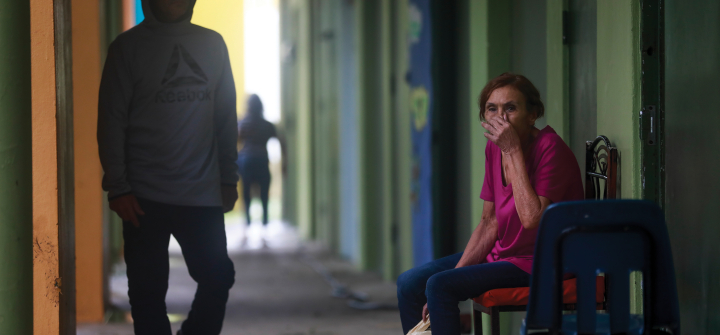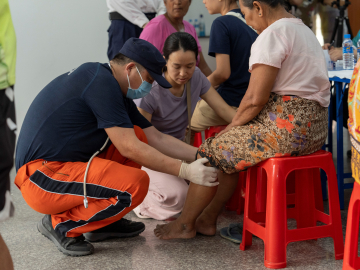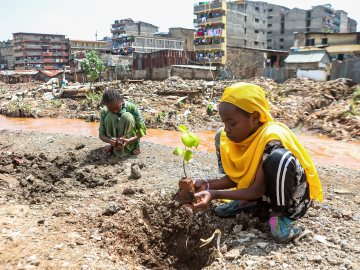No More Bandages: Let’s Rebuild Puerto Rico’s Health System as a Cornerstone of Disaster Preparedness
5 years living under a blue FEMA tent—a temporary solution for the aftermath of Hurricane Maria. Only to lose everything again when Hurricane Fiona flooded Puerto Rico with the equivalent of 1.1 million Olympic-size swimming pools.
This is the reality for many Puerto Ricans.
In 2017, Hurricane Maria, a category 4 hurricane lashed Puerto Rico with winds up to 155 miles per hour. The US Commonwealth was in shambles. People endured months without electricity and weeks without water. Puerto Ricans made electric generators as much a part of their homes as rice and beans. Many emigrated to the “motherland.” The island suffered a mass exodus, including 9,000 physicians, reducing the physician pool by half. Our regionalized health system, previously known as the best in the US and which was replicated in other countries, has suffered a failed health care reform. It privatized services and made a resilient health system into a weak one. This health system now needs to serve an aging population and one where 43.1% of people and 57% of children live in poverty.
Those aren’t the only challenges the island faces. Puerto Rico went bankrupt in 2014. Then in 2019, President Trump did everything possible to delay Hurricane Maria funds through FEMA. In 2020, multiple earthquakes were followed by COVID-19. And just as Puerto Ricans began seeing the light, Hurricane Fiona knocked out the lights—five years to the day after Maria.
Once again, the island has been decimated.
This beautiful island is plagued by temporary fixes that were never fully solved. Decisions are made with complete disregard for evidence-based policymaking. Today, more than a week after Fiona, 4 out of 10 people do not have electricity. The temporary bridges gave way to the high river currents and were destroyed. Many roads were affected, and families had their homes flooded.
I returned to Puerto Rico earlier this year, after 32 years away. I learned of the difficulty of finding a medical appointment and the back seat role given to the Department of Health. I do not recognize that fabulous health system we used to applaud. As WHO states “health systems at all levels have a central role in managing the risks and reducing the consequences of emergencies and disasters from all-hazard.”
The solution, although not simple, is clear. We need to assess the threats Puerto Rico faces from natural disasters and other challenges to the health of its people. We must find and prioritize the best, evidence-based, permanent solutions. We must stop putting bandages on problems that require major surgery.
There is an amazing opportunity for civil society, including the PR diaspora, patient advocacy groups, health professionals and the public health academia to promote such work and hold our government accountable. I hope Puerto Rico defines a solid plan and the US government takes it seriously.
One thing has not changed in these 32 years since I left—the people are sweet and helpful with an attitude of “we will get through this together, no matter what.”
Three decades later, and I’m more in love with Puerto Rico and its people than ever before.
Ana Rita Gonzalez, ScD, MHSA, CPA, is president & CEO of Policy Wisdom LLC.
Residents take refuge at a Salinas, Puerto Rico high school on Sept. 19 after Hurricane Fiona slammed the island. Jose Jimenez/Getty Images





